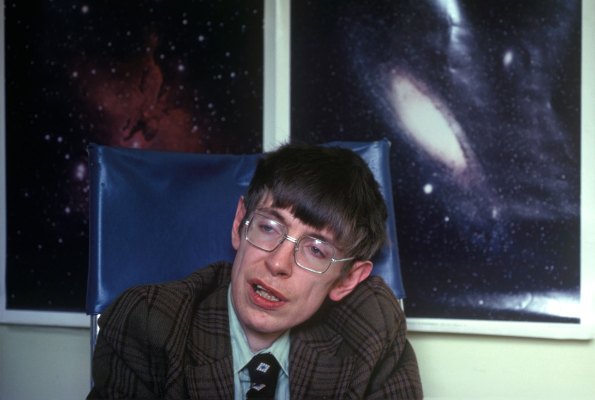
Stephen Hawking href=”https://techcrunch.com/2018/03/13/stephen-hawking-has-died-at-76/”> passed away earlier this year at the age of 76, but his incredible intellect isn’t yet done contributing to the scientific community. The acclaimed physicist’s final paper is now online for anyone to read and it revisits some mysteries of the physical world that came to define his illustrious career.
Titled “Black Hole Entropy and Soft Hair,” the paper was co-authored by Hawking collaborators Sasha Haco, Malcolm Perry and Andrew Strominger. The paper is available free on pre-publication repository ArXiv and includes a touching tribute to Hawking.
“We are deeply saddened to lose our much-loved friend and collaborator Stephen Hawking whose contributions to black hole physics remained vitally stimulating to the very end,” it reads.
The paper serves as a kind of bookend to Hawking’s career, collecting some of his final work on the quantum structure of black holes — a topic that Hawking pursued throughout the last 40 years.
It’s fitting that Hawking’s last paper would be a technical dive into one of the greatest unresolved questions in physics — and one he posed to begin with: Can matter that falls into a black hole truly disappear, even though according to the laws of physics that should be impossible? The paradox is troubling because it pits the laws of quantum mechanics against those of general relativity.
In the paper, Hawking and his colleagues proposed that something called “soft hair” could resolve that tension. The “hair” refers to photons at the event horizon, the edge of a black hole. In the soft hair version of events, the so-called hair on the black hole’s border would actually store information about the matter that had fallen into the black hole. That would mean the information attached to that matter wasn’t deleted from the universe at all, rather that it only appeared to vanish beyond an apparent horizon.
“It’s a step on the way, but it is definitely not the entire answer,” co-author Malcolm Perry told the Guardian. “We have slightly fewer puzzles than we had before, but there are definitely some perplexing issues left.”
Be the first to comment